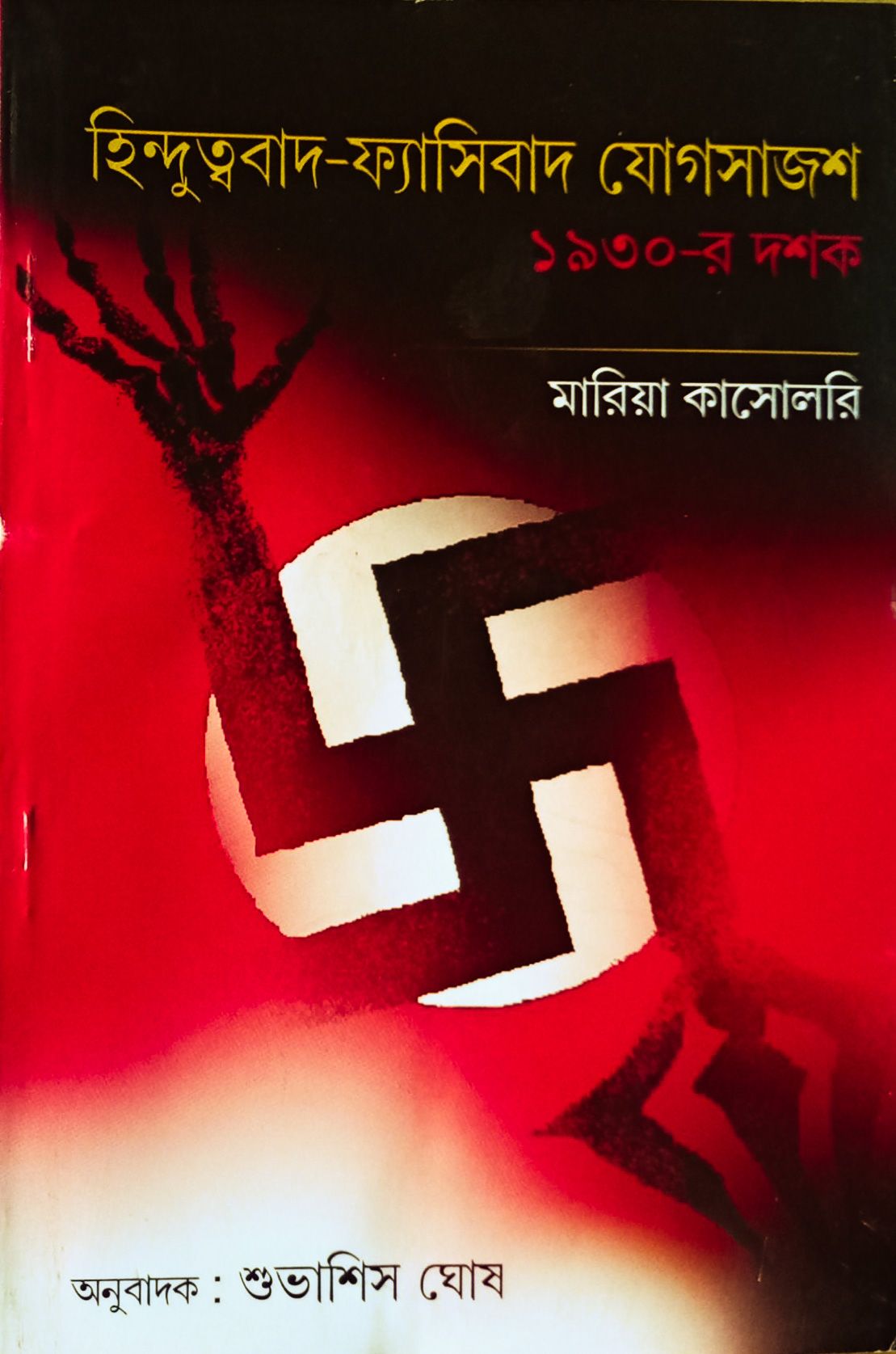Hindutwobad-Fyasibad Zogsajosh: 1930 er doshok
Hindutwobad-Fyasibad Zogsajosh: 1930 er doshok is backordered and will ship as soon as it is back in stock.
Couldn't load pickup availability
Genuine Products Guarantee
Genuine Products Guarantee
We guarantee 100% genuine products, and if proven otherwise, we will compensate you with 10 times the product's cost.
Delivery and Shipping
Delivery and Shipping
Products are generally ready for dispatch within 1 day and typically reach you in 3 to 5 days.
-
Author: Maria Casolari
-
Category: Essays
-
Publisher: National Book Agency Private Limited
-
Language: Bengali
-
First Publication Year: 2001
-
Edition: 5th Edition
-
Binding: Pinned (Hardcover)
-
Number of Pages: 56
-
ISBN: 978-93-48253-02-6
About the Book:
This book explores the early connections between Hindu nationalism and European fascism in the 1930s. It highlights the first interactions between leaders of Hindu nationalist movements and European fascist regimes during this period.
-
Content Overview:
The author discusses key events such as B.S. Munje’s visit to Italy, where he met Benito Mussolini during his participation in the Round Table Conference. The book provides an in-depth account of these interactions, and also discusses the relationships between Italian fascism, German Nazism, and prominent Hindu nationalist figures such as Vinayak Savarkar and Munje. -
Significance:
Maria Casolari draws on archival documents from both Indian and foreign repositories to validate her analysis, making this book a significant contribution to understanding the ideological and organizational links between Indian Hindu nationalism and European fascism. It reveals previously unknown details about the ideological and organizational structure of Hindu nationalism and its ties to fascist regimes during the 1930s. -
Important Themes:
The book critically examines the ideological underpinnings of Hindu nationalism and fascism, offering a well-documented exploration of how these two movements began to intertwine during the 1930s





